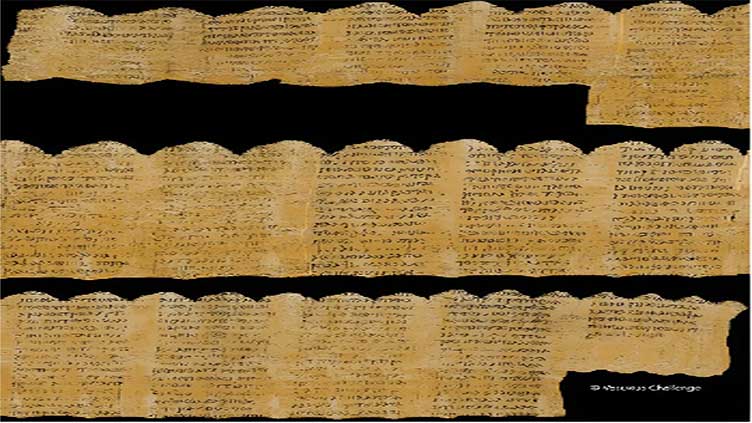Dozens of ancient texts hiding lost secrets 'will be revealed using AI'

Technology
A volcano buried a handful of cities in Gulf of Naples beneath pounds of ash and molten rock
(Web Desk) - Dozens of ancient scrolls are set to be deciphered using AI, thousands of years after surviving the eruption of Mount Vesuvius.
The volcano buried a handful of cities in the Gulf of Naples beneath pounds of ash and molten rock when it exploded nearly 2,000 years ago.
Among the cities lost was Herculaneum, down the coast from Pompeii.
A lush villa was excavated in the 18th century, containing mosaics, statues, and other art that had been perfectly preserved.
Its defining feature were around 1,000 papyrus scrolls, which also gave it its name: Villa of the Papyri.
While they remained intact, the scrolls had been carbonized - blackened and fossilized.
Enter the Vesuvius Challenge, a competition that aims to use artificial intelligence to virtually unroal hundreds of scrolls that were sealed shut.
They are thought to have belonged to Lucius Calpurnius Piso Caesoninus, better known as Julius Caesar's father-in-law.
He was the patron of the Epicurean philosopher Philodemus of Gadara, whose ancient writings on ethics and physics were recovered from the ruins.
Several attempts have been made to physically unravel the papyri, with limited success.
In 2007, University of Kentucky computer scientist Brent Seales proposed a solution: using computer programs to resolve the mystery of the scrolls.
Seales realized the carbon ink would be indistinguishable from the blackened paper without the help of advanced technology.
Initial experiments confirmed that AI could help, but the project only kicked into high gear when Silicon Valley entrepreneur Nat Friedman suggested creating an open-source AI challenge.
A million-dollar prize was among the incentives offered to teams that could break open the scrolls. More than 1,000 have tried their hand at the challenge since March 2023.
The first letters and lines of Greek text were identified in October 2023, and just this February, the first winners of the prize money were announced.
Their AI model revealed sections of 15 columns from the innermost part of one of the scrolls - revealing, for the first time, a text on ethics.
The miraculous feat was achieved by scanning the scroll in a particle accelerator, or a machine that "excites" particles like protons and electrons to create high-powered beams.
The structure of the scroll was analyzed and virtually flattened. Next, the team trained ink detection AI on the papyrus, based on patterns identified through visual inspection.
This developement spurred on the funding of phase two of the challenge, with groups like the Musk Foundation signing on to fund the prize.
Thanks to the emergent technology, dozens more writings will likely be deciphered in years to come.
Researchers anticipate to see works on a range of topics from mathematics to music.
And there is more to discover, too. Many researchers believe another Greek and Latin library has yet to be unearthed from the rubble.


